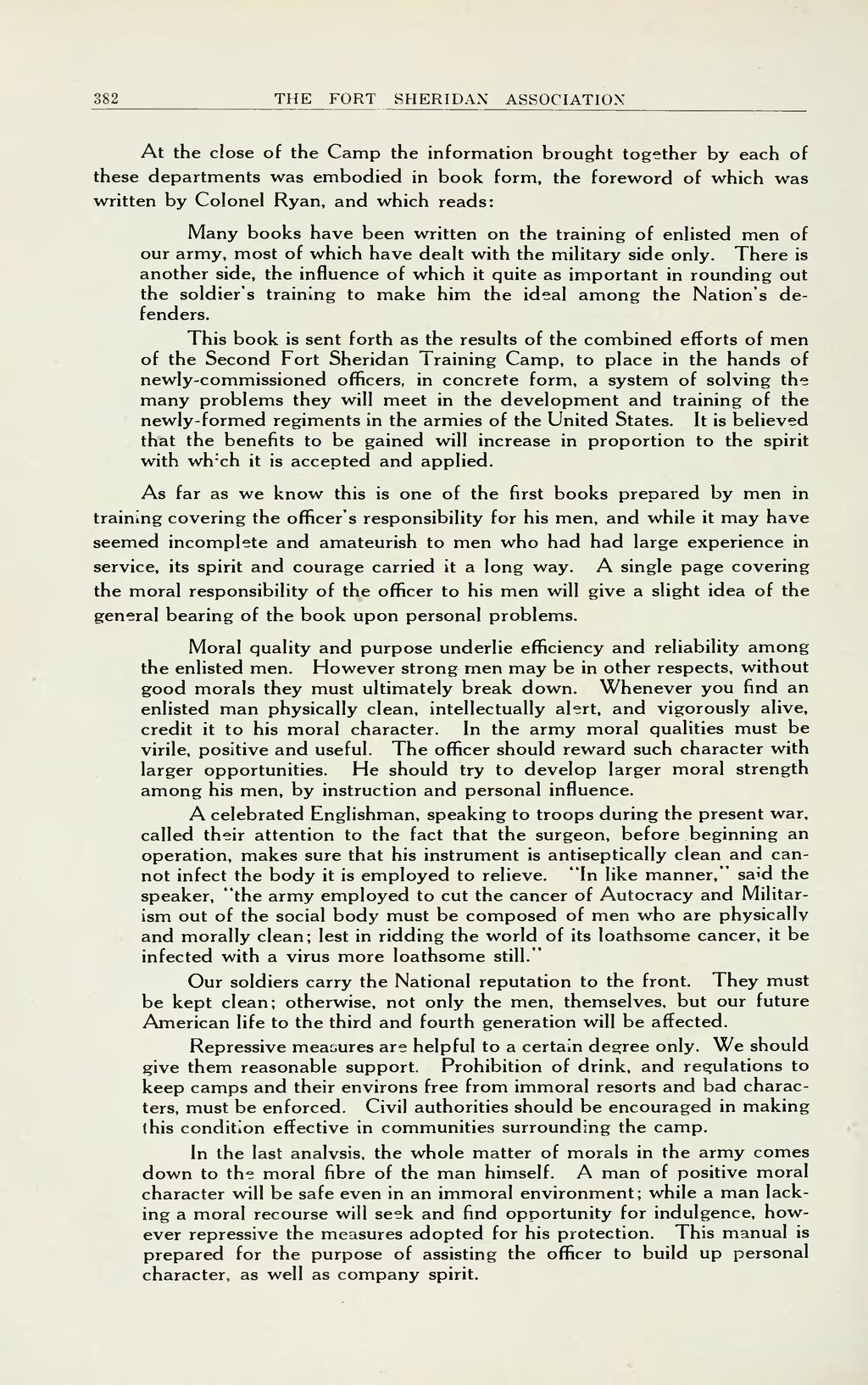382 THE FORT SHERIDAN ASSOCIATION
At the close of the Camp the information brought together by each of these departments was embodied in book form, the foreword of which was written by Colonel Ryan, and w^hich reads:
Many books have been written on the training of enlisted men of our army, most of which have dealt with the military side only. There is another side, the influence of which it quite as important in rounding out the soldier's training to make him the ideal among the Nation's de- fenders.
This book is sent forth as the results of the combined efforts of men of the Second Fort Sheridan 1 raining Camp, to place in the hands of newly-commissioned officers, in concrete form, a system of solving the many problems they w^ill meet in the development and training of the new^ly-formed regiments in the armies of the United States. It is believed that the benefits to be gained will increase in proportion to the spirit with wh'ch it is accepted and applied.
As far as we know^ this is one of the first books prepared by men in training covering the officer's responsibility for his men, and while it may have seemed incomplete and amateurish to men who had had large experience in service, its spirit and courage carried it a long w^ay. A single page covering the moral responsibility of the officer to his men will give a slight idea of the general bearing of the book upon personal problems.
Moral quality and purpose underlie efficiency and reliability among the enlisted men. However strong men may be in other respects, w^ithout good morals they must ultimately break dow^n. Whenever you find an enlisted man physically clean, intellectually alert, and vigorously alive, credit it to his moral character. In the army moral qualities must be virile, positive and useful. The officer should reward such character with larger opportunities. He should try to develop larger moral strength among his men, by instruction and personal influence.
A celebrated Englishman, speaking to troops during the present war, called their attention to the fact that the surgeon, before beginning an operation, makes sure that his instrument is antiseptically clean and can- not infect the body it is employed to relieve. "In like manner, " sa'd the speaker, "the army employed to cut the cancer of Autocracy and Militar- ism out of the social body must be composed of men who are physically and morally clean; lest in ridding the world of its loathsome cancer, it be infected with a virus more loathsome still. "
Our soldiers carry the National reputation to the front. They must be kept clean; otherw^ise, not only the men, themselves, but our future American life to the third and fourth generation will be affected.
Repressive measures are helpful to a certain degree only. We should give them reasonable support. Prohibition of drink, and regulations to keep camps and their environs free from immoral resorts and bad charac- ters, must be enforced. Civil authorities should be encouraged in making (his condition effective in communities surrounding the camp.
In the last analvsis, the w^hole matter of morals in the army comes down to the moral fibre of the man himself. A man of positive moral character will be safe even in an immoral environment; while a man lack- ing a moral recourse will seek and find opportunity for indulgence, how- ever repressive the measures adopted for his protection. This manual is prepared for the purpose of assisting the officer to build up personal character, as w^ell as company spirit.
�� �
